An often asked question, “Why is Islam the only true religion”? Here you will find 10 comprehensive ways to meet the criteria for religious truthfulness.
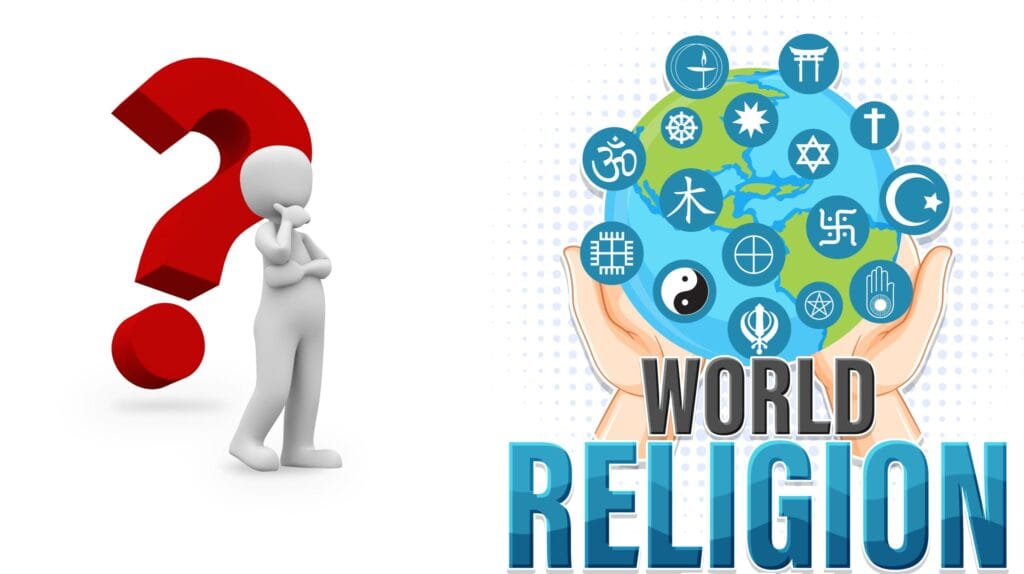
Table of Contents
Introduction
There are hundreds of religions in the world. According to research estimates by the Pew Research Centre and other religious demographic studies, there are over 4,000 religions (including sects or denominations) globally. These religions vary widely in theology, practices, and worldviews.
Pew Research Center, 2017: ‘The Future of World Religions’
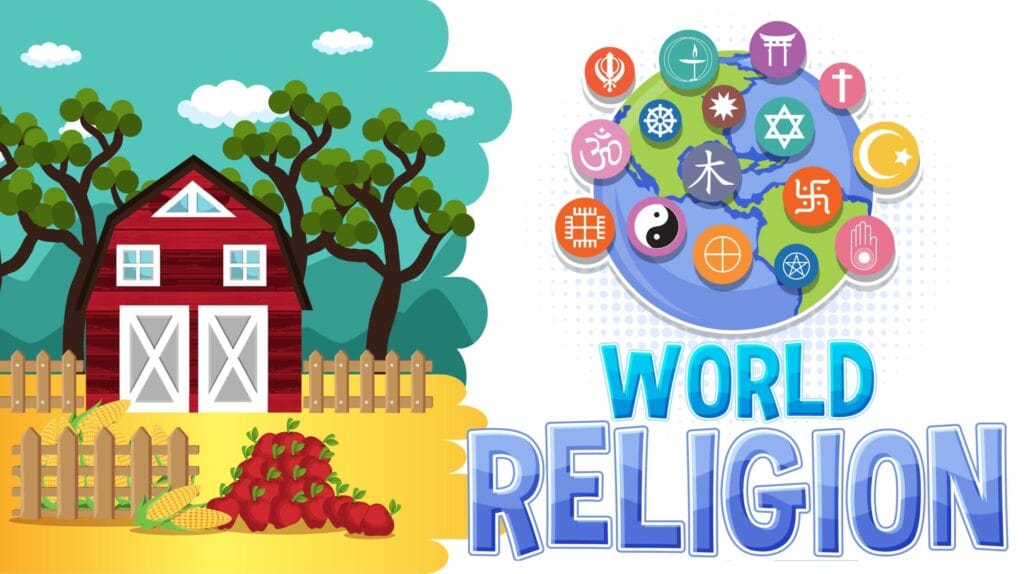
Some religions focus on a single divine creator (monotheism), while others incorporate multiple gods and goddesses (polytheism), or spirits and essences in nature and objects (animism). Some beliefs involve the veneration of supernatural beings like ghosts and demons.
These different approaches to faith and worship are foundational to a wide variety of belief systems around the world.
Here, you will learn about only 3 major religions that preach the concept of the Unitarian God. These religions oppose the idea of multiple deities and are collectively called as Abrahamic religions.
1. Judaism
2. Christianity
3. Islam
Each of these religions believes in one Supreme Being, though they refer to Him by different names.
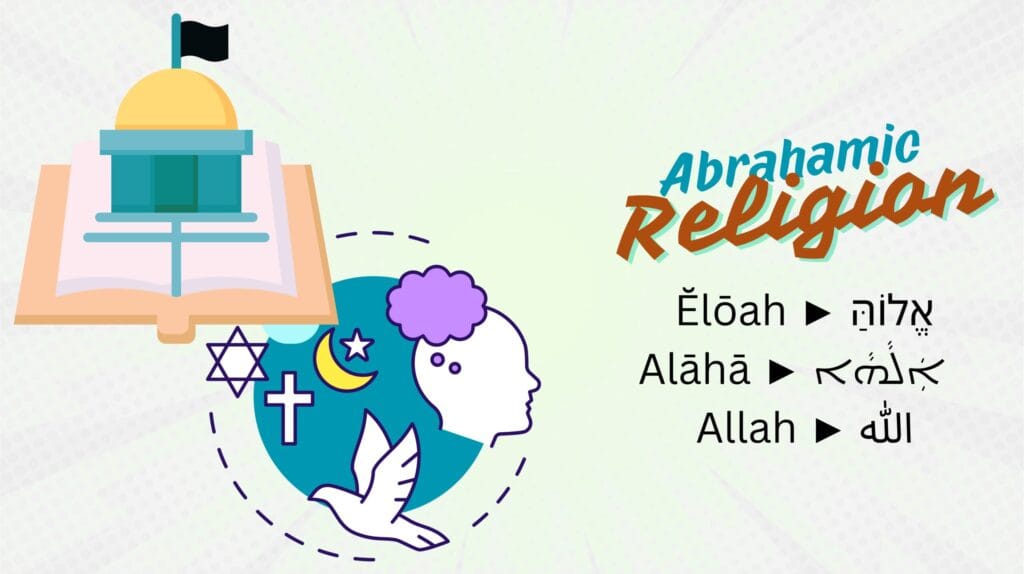
Note:
- The goal of the content is to evaluate—with sincerity, depth, and respect—how these religions stand against key criteria for religious truth.
- This content focuses primarily on the Abrahamic traditions, as they share a monotheistic foundation and a claim to divine origin.
- It is intended to educate readers on how to assess religious truth through a rational, spiritual, and historical lens.
- It ultimately explains why Islam uniquely fulfils all truth criteria.
Before diving into the criteria for religious truth, let us understand what the philosophy of these religions is.
1. Judaism | The Oldest Monotheistic Tradition
Judaism dates back to around 2000 BCE and follows the teachings of the Prophet Moses (PBUH)—a revered prophet in all three Abrahamic faiths. He was given a divine scripture called the Torah. This holy scripture contained the commandments and guidance of the Creator for the Children of Israel.
Moses (PBUH) was sent among the Israelites with a special mission of liberating them from Pharaoh’s oppression and restoring belief in the One True God. Because of his (PBUH) leadership, miracles, and the divine law he (PBUH) conveyed, the Jewish people received special favour and responsibility from Allah.
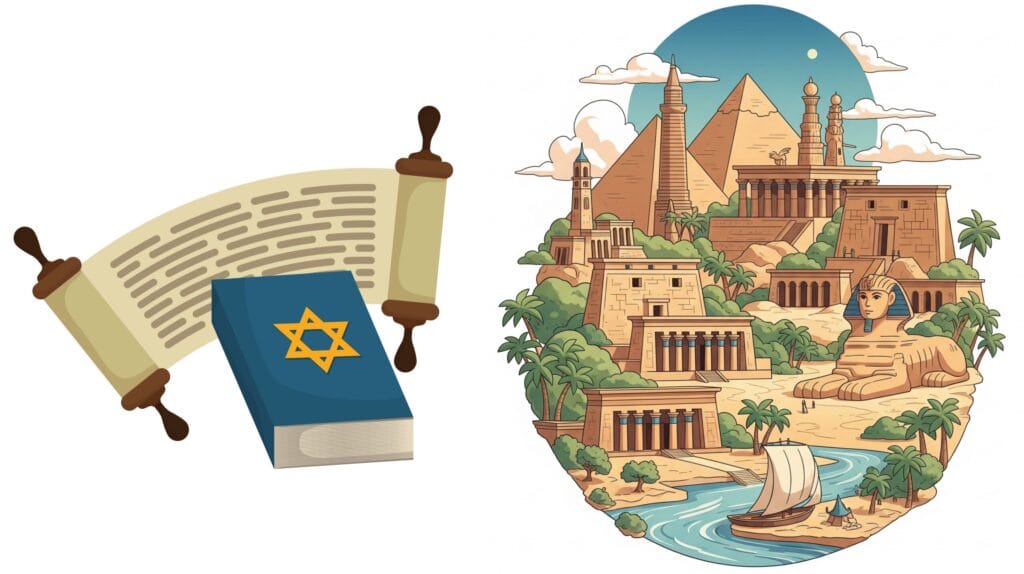
The Message of Judaism
Judaism was a tribal religion and directed primarily toward the Children of Israel. Its message and law were not intended as a universal call, but rather a covenant between God and that specific nation (Israelites). Over time, however, the special status they relished led them to a sense of superiority and defiance.
As the Qur’an describes, the Jews repeatedly defied their prophets and broke their covenant:
“And [recall] when We took your covenant, [O Children of Israel], and We raised over you the mount [saying], ‘Take what We have given you with determination and listen.’ They said, ‘We hear and disobey.’ And their hearts absorbed [the worship of] the calf because of their disbelief. Say, ‘How wretched is that which your faith enjoins upon you, if you should be believers.’”
— Qur’an 2:93
Defiance to Exile and Diaspora
The defiance of the Israelites led to the wrath of Allah that descended upon them twice. This resulted in the exile and a long diaspora of the Israelites.

Their prolonged diaspora came to an end only when Muslims emerged on the global scene.
Muslim empires, after the 600s CE, turned out to be a blessing for them and became a source of unexpected protection and relief. The persecutions they were facing at the hands of Christian empires before that finally came to an end.

Despite a bittersweet history, even amid the prolonged exile, Judaism consistently upheld the strict monotheistic belief throughout the centuries. The Jewish people have experienced both divine blessings and periods of disobedience.
In a nutshell, the core belief in a singular, indivisible, and transcendent God remained central to Jewish theology, showcasing the resilience of their monotheistic tradition.
Core Beliefs of Judaism
- Belief in One God (YHWH) – Eternal, indivisible, and unique.
- Reverence for the Torah – As the foundational divine law given to Moses.
- Covenant Theology – That God made a special covenant with the Israelites.
- Moral and Ritual Law – Following commandments (mitzvot) in everyday life.
- Awaiting the Messiah – A future leader who will bring peace and restore the Temple.
- Accountability and Afterlife – Though less emphasised, belief in reward and punishment exists in some Jewish traditions.
Judaism is a religion, while Zionism is a political movement. The foundation of Zionism is built on a political goal that some people believe has nothing to do with Judaism.
Actions taken by some Zionists are viewed by critics (both Jews and non-Jews) as being against the core values of Judaism and are labelled as atrocities done under the pretence of religion. Furthermore, these individuals are said to control the narrative through media and the internet.
2. Christianity | Symbolic or Compromised Monotheism
Christianity emerged after the life and teachings of Jesus (PBUH), one of the most revered figures in human history. According to Islamic belief, he was a mighty prophet of God who received divine revelation — the Gospel (Injeel) — to guide the Children of Israel.
The earliest followers of Jesus were strictly Unitarian, continuing in the tradition of earlier Jewish prophets. They saw Jesus as a messenger of God, not God Himself.
However, political power, religious councils, and clerical influence reshaped the core doctrines of Christianity. It was done to align with the influence of Roman pagan and political goals.
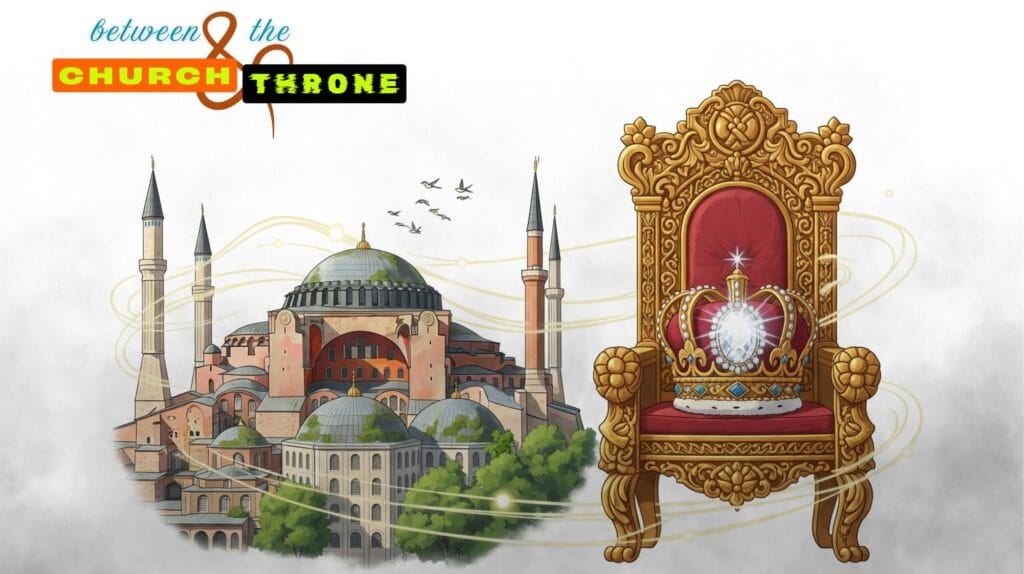
This theological evolution gave rise to the doctrine of the Trinity:
Father, Son, and Holy Spirit—three persons in one divine essence.
A Controversial Doctrine
The Trinity – introduced in the 4th century – is one of the most controversial and heavily debated concepts in Christian theology.
Trinity is presented as a mystery beyond reason, defended through complex arguments, but discouraged from being questioned by many traditional institutions. This has caused confusion and doubt among thinkers and seekers who wish to understand the Creator coherently and rationally.
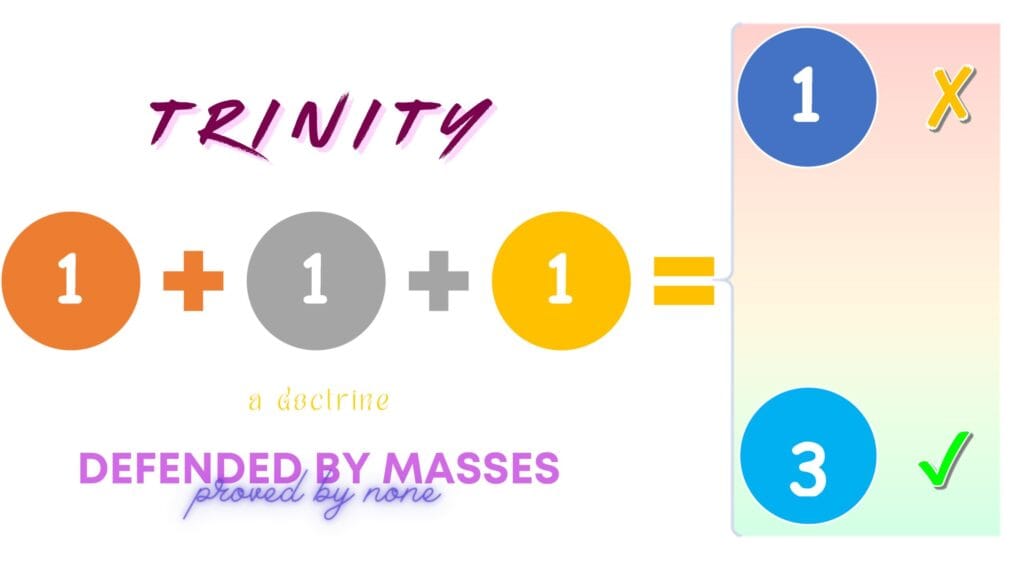
Although Christians profess belief in one God, the Trinitarian doctrine introduces three distinct persons. From an Islamic perspective, the Qur’an says that:
“They have certainly disbelieved who say, “Allah is the third of three.” And there is no god except one God. And if they do not desist from what they are saying, there will surely afflict the disbelievers among them a painful punishment.”
— Qur’an 5:73
Additionally, from the rational perspective, the formulation 1 + 1 + 1 = 1 appears closer to tritheism or symbolic polytheism, as each person in the trinity is regarded as fully and equally divine.
Did the Core Beliefs Change Over Time?
Yes!
The original message of Jesus (PBUH) as a servant and messenger of God was gradually replaced by different doctrines. These doctrines were developed centuries later, including:
- Trinity – formalised at the Council of Nicaea (325 CE)
- Divinity of Jesus – increasingly emphasised after the first century
- Original Sin and Atonement – doctrines with no explicit roots in Jesus’s teachings
- Authority of Church and Pope – institutional additions not taught by Jesus himself
These changes were often shaped by Roman political authority, pagan influence, and later church councils, rather than clear teachings from Jesus.
Core Beliefs in Christianity (Today)
Despite denominational differences (e.g., Catholic, Orthodox, and Protestant), most Christian groups share the following core doctrines:
- Belief in One God – Interpreted through the Trinity.
- Jesus as the Son of God – Believed to be divine and the saviour of humanity.
- Crucifixion and Resurrection – Seen as the basis of salvation and forgiveness.
- Salvation by Faith – Trust in Jesus’s sacrifice leads to eternal life.
- Authority of the Bible – Viewed as the inspired Word of God (not the true Word of God).
- Final Judgment – Belief in heaven and hell based on faith and divine grace.
3. Islam | The Pinnacle of Pure Monotheism (Tawhid)
Islam came as a restoration of the original monotheistic message revealed to all previous prophets. It re-established the core belief in Tawhid (or Tawheed)—the absolute oneness of God (Allah).
Islam firmly rejects all forms of polytheism, idolatry, and human deification. It teaches that Allah is the sole Creator, eternal, self-sufficient, and without partners, parents, or offspring.
“Say: He is Allah, the One and Indivisible. Allah—the Eternal, Absolute. He neither begets nor is born. And there is none like unto Him.”
— Qur’an 112:1–4
“Iqra” — Read, Reflect, Reason
The first revelation to the Prophet Muhammad (PBUH) started with a single powerful word:
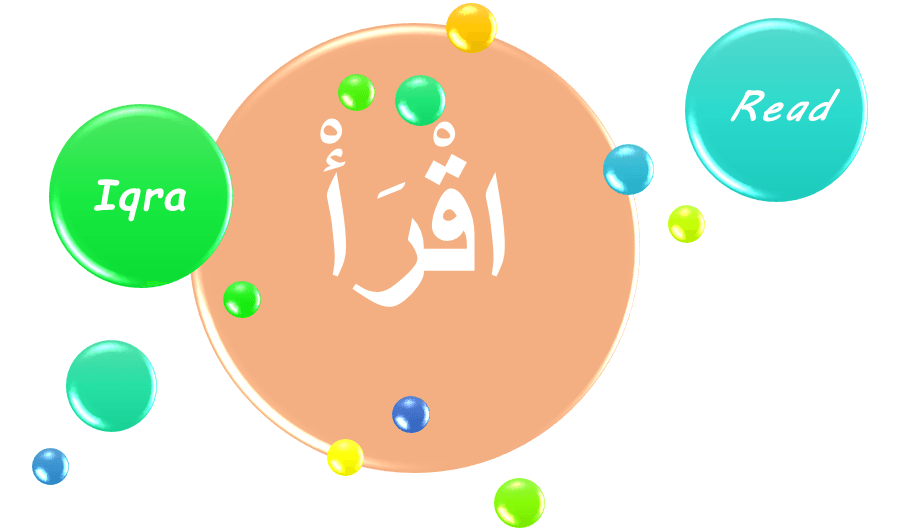
This command was not just about literacy; it was a divine invitation to everyone. It urged individuals to think, explore, and conduct personal inquiry. From the very beginning, Islam urged its followers to reflect, question, and verify truth—something that was similar to the character of Abraham (PBUH).
Islam rejected blind faith traditions of idolatry, deification, and intermediaries. It initiated a movement grounded in rationality, scholarship, and spiritual awakening.
The Qur’an — A Living Challenge
One of the most striking features of Islam is the open challenge of the Qur’an to the world:
“And if you are in doubt about what We have sent down upon Our Servant [Muhammad], then produce a chapter like it… But if you do not—and you will never be able to—then fear the Fire…”
— Qur’an 2:23–24
This challenge to mimic even a single chapter of the Qur’an—based on its literary, moral, and spiritual depth—remains unanswered.
The Qur’an repeatedly invites critique and examination, claiming divine authorship with bold confidence, yet maintaining consistency, depth, and unchanged preservation over 1400+ years.

Universality and Inclusiveness
Unlike Judaism’s tribal focus and Christianity’s later theological shifts, Islam is universal in scope. It is not just a religion; it is a code of life.
The message of Islam is clear, uncompromising, and intellectually defensible. It is meant for all people, all places, and all times.
“We have not sent you [O Muhammad] except as a mercy to the worlds.”
— Qur’an 21:107
Core Beliefs of Islam
The core beliefs of Islam are called articles of Islam, and these are:
- Belief in Allah – The One, Absolute God.
- Belief in the Angels – Created beings who carry out God’s commands.
- Belief in the Revealed Books – Including the Torah, Psalms, Gospel, and Qur’an (the final and preserved revelation).
- Belief in the Messengers – All prophets, culminating with Muhammad (PBUH).
- Belief in the Day of Judgment – Accountability and the afterlife.
- Belief in Divine Decree (Qadr) – Allah’s knowledge, will, and control over all that happens.
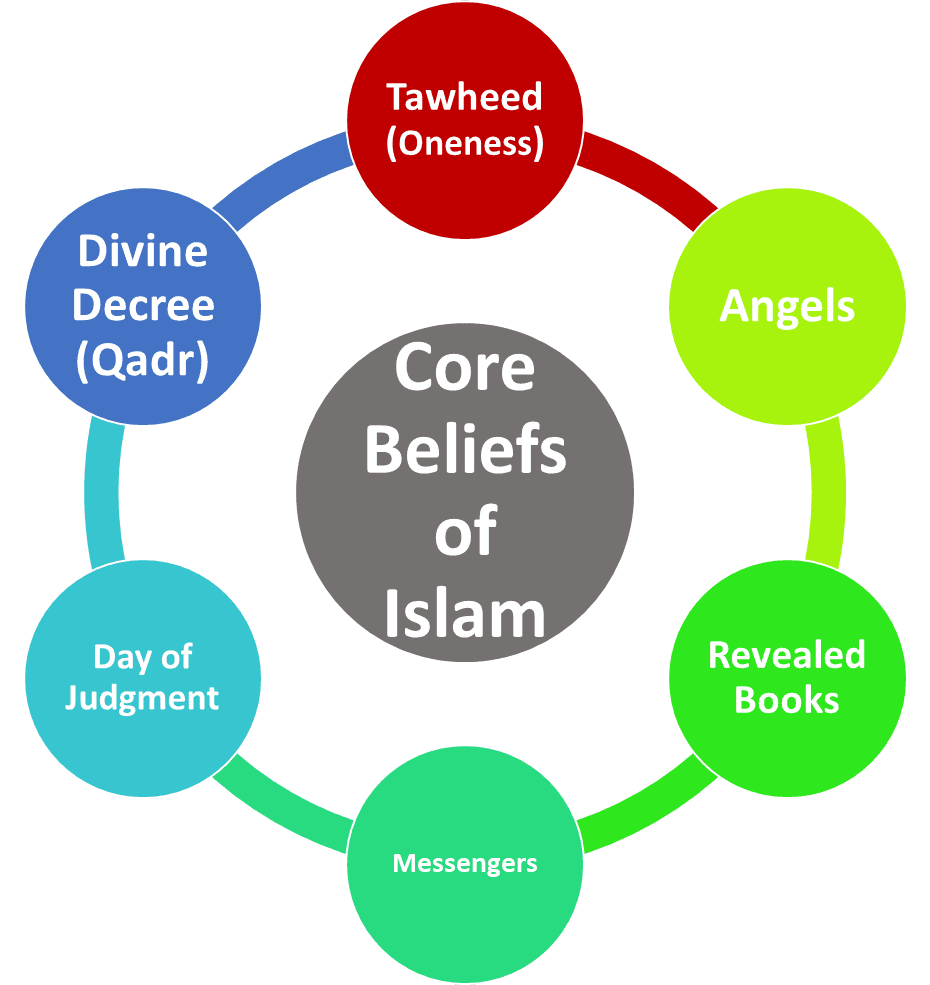
Anyone denying a core principle of Islam is considered outside the fold of Islam, regardless of lineage or cultural label.
For instance, certain sects, such as the Druze, Alawites, or Ahmadiyya, are considered by many mainstream scholars to fall outside the bounds of orthodox Islam due to significant theological departures.
How Can One Know a Religion is True?
Now the question is, how to find a true religion?
Here are 10 comprehensive ways to meet the criteria for religious truth. This criterion can help individuals to evaluate the authenticity and truthfulness of any religion.
You may have a differing view and/or criteria in mind to judge the truthfulness of a religion; however, based on logical thinking and rationality, the foundational idea would remain the same.
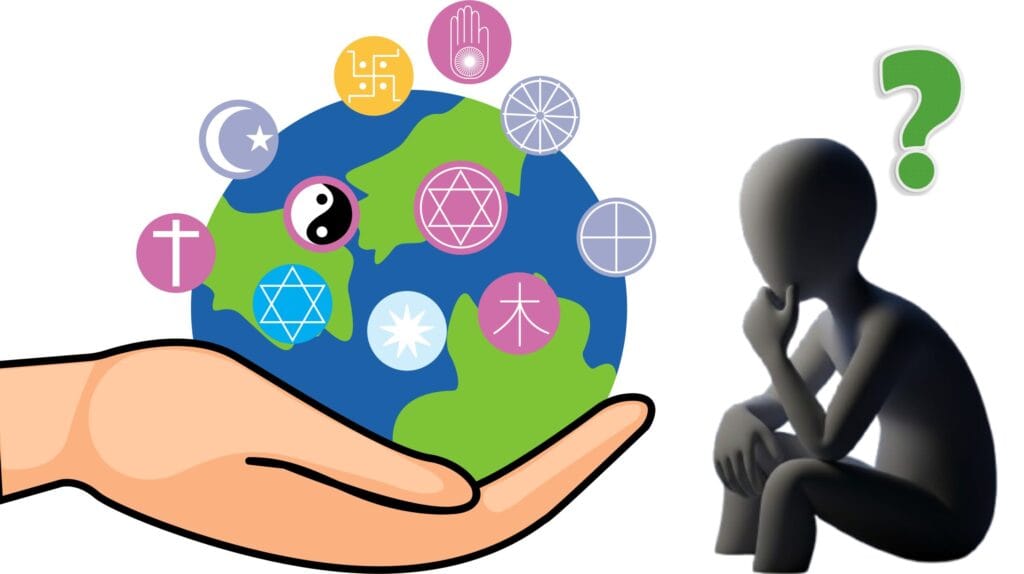
Let us discuss them one by one.
1. Internal Consistency
Internal consistency refers to the logical coherence of teachings, scriptures, and worldview within a religion. A religion that claims to convey divine truth should not contain any internal contradictions or fragmented ideas.
Key Questions
Ask yourself:
- Are its teachings logically coherent?
- Do its scriptures contradict themselves?
- Does its worldview form a unified, sensible whole of reality, human nature, morality, and the divine?

Islam’s Strength
The Qur’an maintains remarkable thematic, theological, and linguistic consistency across all its chapters, despite being revealed over 23 years. Unlike texts influenced by multiple authors or revisions, the Qur’an is internally unified and meticulously preserved.
Bottom Line
From theology to practice, a true religion must have a clear, unified, and contradiction-free message internally.
2. Correspondence to Reality (Empirical or Philosophical Coherence)
This criterion evaluates whether the teachings of religion align with the real world or not. It means, try to validate whether the claims made by the religion correspond to observable facts, historical records, and sound reasoning.
Key Questions
Ask yourself:
- Does it align with known facts about history, science, and human experience?
- Are its claims supported by reason and observable reality?
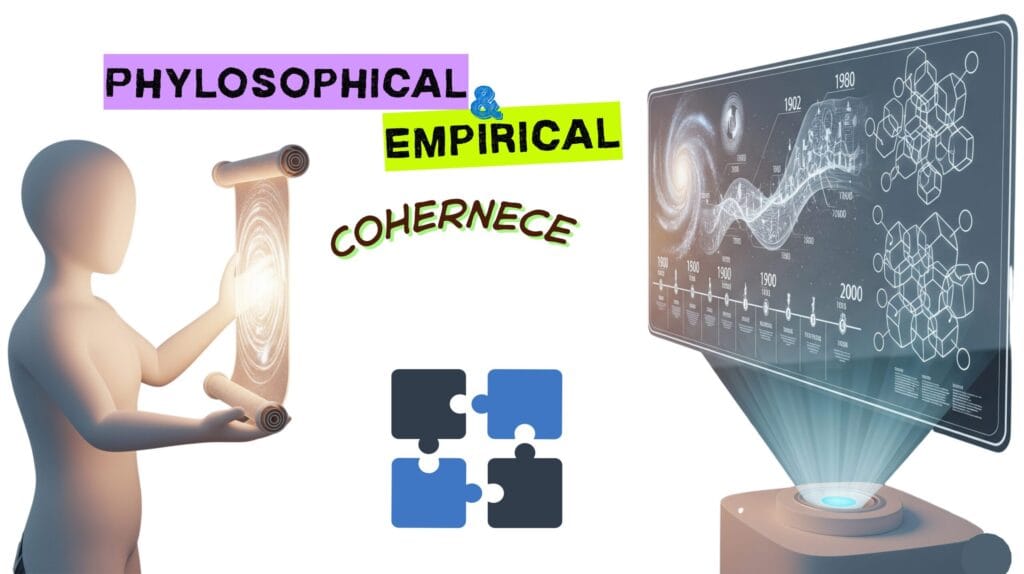
What does Empirical or Philosophical Coherence Mean?
Well!
- Empirical coherence means whether the religious view of the physical world holds up to scientific and historical scrutiny.
- Philosophical coherence means whether it makes logical sense and gives satisfying answers to deep questions (like consciousness, meaning, suffering) using reason.
Islam’s Strength
From its accurate references to embryology and natural phenomena to its consistent ethical philosophy, Islam aligns closely with what is known about the natural and human world. The Qur’an encourages observation, reflection, and rationality.
Bottom Line
If the teachings of a religion reflect how the world is – not just how one hopes or imagines it to be – that religion is more likely to be true
3. Historical Reliability
This criterion assesses whether the origin story of a religion, foundational events, key figures, and scriptures are backed by credible historical evidence. A religion rooted in real history, rather than in myth or legend, carries greater weight in its truth claims.
Key Questions
Ask yourself:
- Are its foundational events historically verifiable?
- Can the existence of its founders and texts be confirmed by independent sources?

Islam’s Strength
The life of Prophet Muhammad (PBUH) is one of the most historically documented in religious history. The Qur’an and Hadith were preserved with stringent memorisation and transmission protocols, unparalleled in other traditions.
Bottom Line
A religion with a verifiable historical foundation is far more compelling than one built on unverifiable legends or questionable timelines. It must be confirmed by independent sources and archaeological evidence.
4. Transformative Power
Transformative power refers to the ability of a religion to bring about real, lasting change in the lives of its followers—morally, spiritually, and personally. A true religion should not only teach truths but also have the power to transform hearts, minds, and societies.
Key Questions
Ask yourself:
- Does the religion inspire genuine moral and spiritual transformation?
- Do its adherents live with peace, purpose, compassion, and integrity?

Islam’s Strength
Islam turned fragmented, tribal Arabia into a unified civilisation that was built on justice, knowledge, and compassion. Its spiritual and moral framework continues to reform lives globally. It is continuously transforming those who are in the depths of despair by presenting them with the beacons of faith and purpose.
Bottom Line
A true religion should be more than words—it should work. If the sincere followers consistently grow in virtue, purpose, and peace, that is strong evidence of divine or transcendent origin.
5. Universalizability
Universalizability refers to whether teachings and principles of a religion are relevant, accessible, and applicable to all human beings, regardless of race, culture, language, geography, or period. A true religion should speak to the entire human condition, not just to a chosen few.
Key Questions
Ask yourself:
- Can its teachings apply to all people, regardless of culture or time?
- Or is it exclusive to a specific ethnicity, tribe, or era?

Islam’s Strength
The message of Islam is universal—transcending ethnicity, culture, and time. Its principles are applicable whether in the 7th century or the 21st, whether in Africa, Asia, or the West. The Qur’an speaks to all of humanity.
Bottom Line
A religion that claims ultimate truth should be for everyone—not confined to a race, region, or ancient time. Its core message should transcend culture, offering spiritual guidance and ethical clarity to all people, at all ages.
6. Spiritual or Mystical Confirmation
This standard looks at whether a religion gives real spiritual experiences to its followers. These experiences should point to something beyond the physical world. They should match the teachings of the religion and bring real inner change—not confusion or false beliefs.
Key Questions
Ask yourself:
- Do practitioners report authentic and consistent spiritual experiences?
- Are these experiences coherent and life-changing, not delusional?
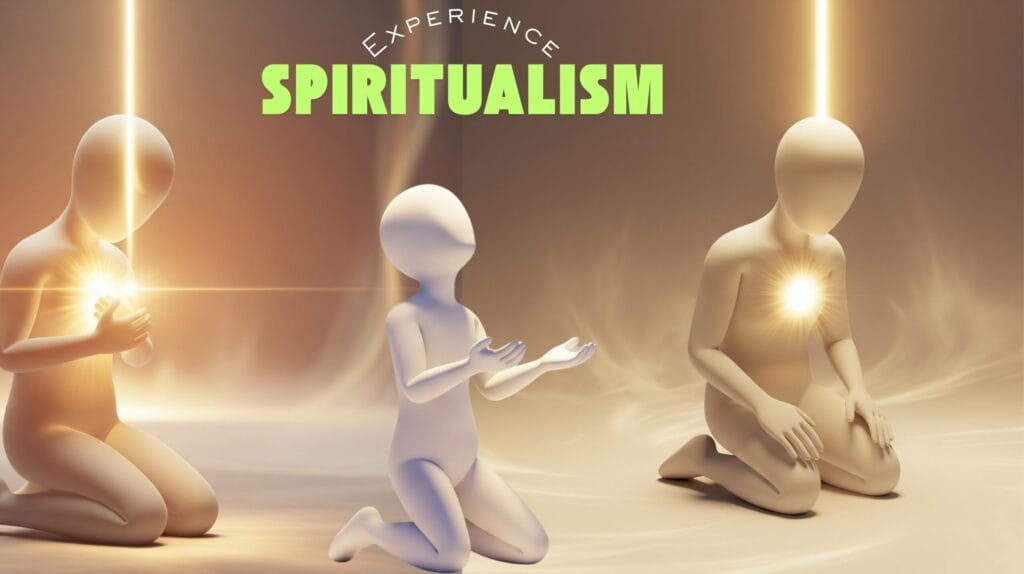
Islam’s Strength
Millions report profound spiritual states through prayer, fasting, Qur’anic recitation, and the pilgrimage (Hajj). Islamic spirituality provides a rich tradition of direct transcendent realisation and divine love.
Bottom Line
A true religion should offer a living, personal connection with the Divine—experienced directly by individuals throughout history, regardless of status or education. These encounters, when genuine, confirm the truth from within.
7. Moral Vision
This criterion assesses whether a religion provides a clear, compelling, and humane ethical framework—one that promotes justice, compassion, and integrity. It also examines how the religion treats the vulnerable, outsiders, and dissenters, which reveals its true moral depth.
Key Questions
Ask yourself:
- Does it offer a compelling ethical system?
- How does it treat the weak, outsiders, or those who question it?

Islam’s Strength
Islam balances justice with mercy, individual rights with societal duties, and spiritual purity with social ethics. It defends the poor, upholds family values, and places immense weight on sincerity and integrity.
Bottom Line
A true religion should not only teach what is right, but also model how to live ethically—especially in how it treats the weak, the doubters, and the “other.” Its moral system should be just, compassionate, and elevating.
8. Predictive Power or Prophecy
This criterion examines whether a religion makes specific, testable predictions—especially those that could not have been known naturally—and whether those prophecies were fulfilled accurately and verifiably. True prophecy supports the claim of divine origin.
Key Questions
Ask yourself:
- Has it made specific, falsifiable prophecies that came true?
- Are these clear predictions or vague statements retrofitted as prophecy?

Caution
Many false or weak prophecies are:
- Too vague (“A great change will come”)
- Highly symbolic (open to many meanings)
- Post-event interpretations (written after the fact or reinterpreted later)
True prophecies are bold and risky—because if they fail, they discredit the source.
Islam’s Strength
The Prophet Muhammad (PBUH) made several clear, bold predictions, including the fall of major empires (Persian and Roman), the spread of Islam, and internal events in the Muslim world. Many have been fulfilled historically and documented through authentic sources.
Bottom Line
A religion with fulfilled, specific, and pre-recorded prophecies has strong evidence of divine guidance. But vague or retrofitted predictions don’t count—they may impress, but they don’t prove truth.
9. Coherence with Reason and Philosophy
This criterion evaluates whether the core teachings of a religion are logically sound, philosophically deep, and capable of providing meaningful answers to the biggest questions of life—such as existence, purpose, morality, suffering, and the afterlife.
Key Questions
Ask yourself:
- Does it answer the biggest questions of life meaningfully?
- Why are we here?
- What is the purpose of life?
- What is good and evil?
- What happens after death?
- Are the answers it gives profound, satisfying, and rational—not superficial or incoherent?
- Can its ideas stand up to logical and philosophical scrutiny?

Islam’s Strength
Islam provides rational and satisfying answers to core questions of existence, morality, suffering, and the afterlife. It does not demand blind belief but encourages inquiry, reflection, and wisdom. Its theological foundation—Tawhid (Oneness of Allah)—is deeply coherent and philosophically sound.
Philosophy vs. Blind Faith
Faith is essential in religion, but when faith completely detaches from reason, it risks becoming dogma rather than truth. A true religion invites thoughtful belief, not irrational submission.
Bottom Line
A religion must speak to both the heart and the mind. If it answers life’s deepest questions with clarity and stands up to critical thinking, it reflects a harmony between faith and reason—a sign of authenticity.
10. Openness to Questioning and Growth
This criterion assesses whether a religion welcomes honest inquiry, allows for critical thinking, and can engage with new knowledge and evolving human experience—while remaining faithful to its core truths. A religion rooted in truth should not fear questions, but invite them.
Key Questions
Ask yourself:
- Does the religion encourage sincere inquiry and critical thought?
- Can it adapt and grow while staying true to its core truths?

Islam’s Strength
The Qur’an itself challenges readers:
“Then do they not reflect upon the Qur’an? If it had been from [any] other than Allah, they would have found within it much contradiction.”
— Qur’an 4:82
Islam encourages learning, debate, and growth in knowledge. Its rich tradition of scholarship reflects this intellectual openness, unlike dogmatic systems that suppress inquiry.
Bottom Line
A true religion does not crumble under questions—it grows through them. If a faith invites sincere exploration, stays rooted while engaging with reality, and encourages both mind and spirit to grow, it reflects authenticity, maturity, and divine confidence.
An Invitation
If you are sincere in your search for truth, do not stop at inherited belief or emotional preference. Seek what aligns with:
- Your mind (rational)
- Your soul (spiritual)
- Your heart (moral)
- History (factual)
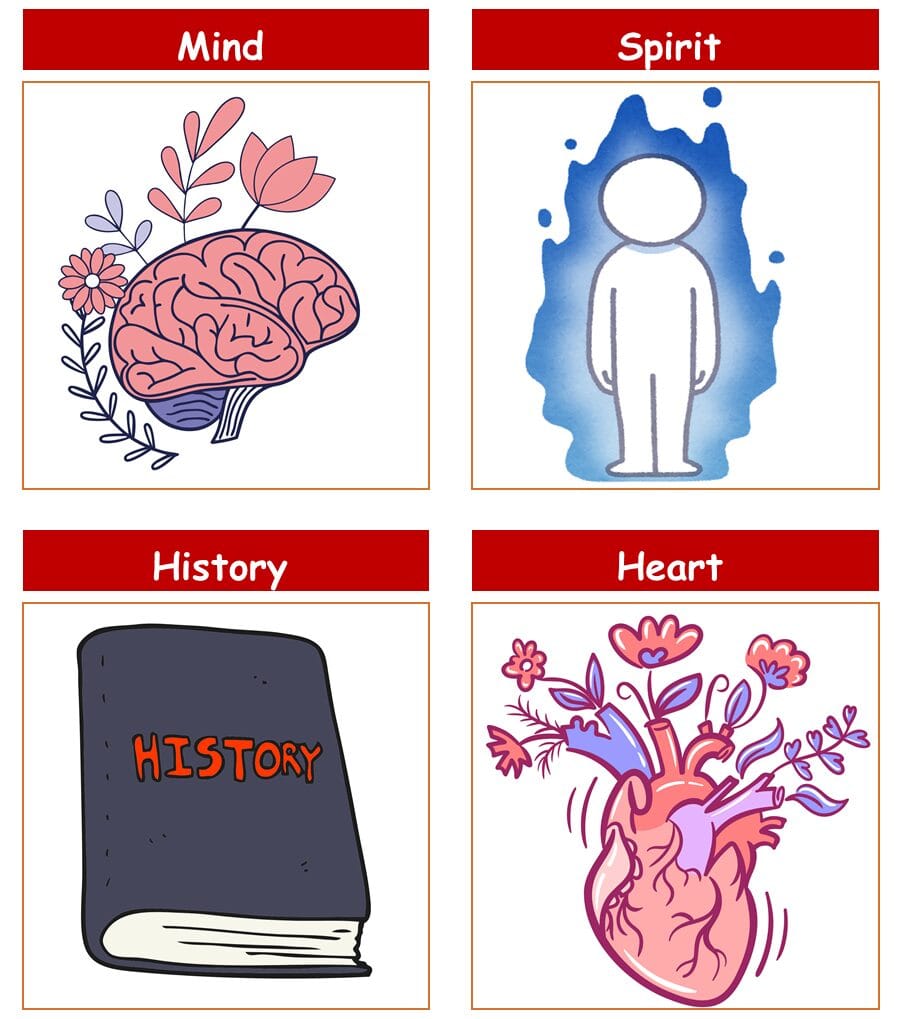
Further Readings
- “The Religion of Truth” by Abdurrahman Al-Sheha
- “Islam and the Destiny of Man” by Charles Le Gai Eaton
- “The Bible, The Qur’an and Science” by Dr. Maurice Bucaille
- “God’s Final Revelation: The Qur’an” by Maulana Wahiduddin Khan
- “World Religions: The Great Faiths Explored & Explained” by John Bowker
- “The Inimitable Qur’an: A Linguistic and Literary Miracle” by Abu Zakariya
Conclusion
While Judaism maintains monotheism and Christianity retains elements of divine message, Islam presents a unique combination of spiritual depth, rational coherence, and universal relevance.
All the goods that are found in the religions of the world, Islam is the summary of those. Through every test of truth—from internal consistency to moral clarity—Islam emerges not just as a faith, but as a complete, timeless, and verifiable system of divine guidance.
For seekers of truth, this is not a call to blind acceptance, but to read, reflect, and verify—just as the Qur’an invites:
“So give good news to My servants—those who listen to what is said and follow the best of it.”
— Qur’an 39:17–18
Religions make profound claims—about God, the universe, life, and death. It’s not enough to follow one out of tradition or culture. Using rational, moral, historical, and spiritual criteria, anyone seeking the truth has the tools to examine, reflect, and decide with clarity.
Frequently Asked Questions (FAQs)
How can I know which religion is the true one?
To identify the true religion, examine it using clear criteria:
- Rational consistency
- Spiritual experience
- Moral clarity
- Historical authenticity
Why is Islam the only true religion?
Islam is the only true religion because it aligns with science, logic, and reason. Its teachings have been fully preserved since they were revealed. Unlike other religions, Islam invites people to question, explore, and verify the truth for themselves—not just follow blindly.
“Read, reflect, and verify” – this is the spirit of the Qur’an.
What makes Islam different from Judaism and Christianity?
While all three share monotheistic roots, Islam stands out by:
- Offering a complete, universal, and final revelation
- Preserving the original message of pure monotheism (Tawhid)
- Providing an unaltered scripture (the Qur’an) and a well-documented prophetic life
Is Islam compatible with reason and science?
Yes!
The Qur’an repeatedly encourages reflection and reasoning. It aligns with modern scientific discoveries and offers rational theology—unlike doctrines like the Trinity or original sin, which challenge logic.
Why do many people convert to Islam today?
People convert to Islam because they find in it:
- Clarity about God
- A direct connection to the Creator
- A structured yet peaceful way of life
- Answers to the biggest questions of life—based on reason and revelation
Does Islam recognise previous prophets and scriptures?
Yes!
Islam honours all prophets—including Abraham, Moses, and Jesus (peace be upon them all)—and believes they were sent by God with truth. However, it holds that past scriptures were altered over time, and the Qur’an came to confirm and correct them.
